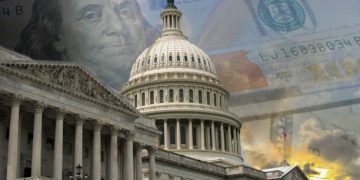June 16, 2025 – U.S. President Donald Trump has repeatedly cited a surge in business investments as a result of his administration’s trade and economic policies, particularly tariffs, tax cuts, and deregulation. Trump recently claimed that over $12 trillion has been “practically committed” during his tenure—figures that significantly exceed reported government statistics and have prompted closer examination by economists and industry analysts.
Government data covering the first quarter of the year, which includes two months of the current administration, showed a rise in business investment, but analysts caution this may partly reflect temporary factors such as a previous Boeing strike. They also note that much of the data likely reflects projects initiated prior to the new administration taking office.
Stanford University economist Nick Bloom suggested that high uncertainty has contributed to a more cautious investment environment, rather than the dramatic surge being claimed. “My guess is business investment is down a little bit… primarily because uncertainty is quite high and that will pause it,” he stated.
Some major firms, such as Swiss pharmaceutical company Roche, have announced large investment plans, but acknowledged these included previously scheduled initiatives. Additionally, some companies have flagged concerns over U.S. policy proposals—such as potential changes to drug pricing—as factors that may affect long-term plans.
The White House has compiled a list of investment announcements, citing companies like Apple, Corning, Stellantis, and Hyundai. However, a review of this list shows that many projects either predate the administration or include spending not traditionally considered capital investment, such as payroll and taxes.
According to a Goldman Sachs analysis, the total value of new investment commitments from the announcements likely amounts to around $134 billion, and could be as low as $30 billion once adjusted for previously planned projects and implementation risk. Despite the discrepancy, White House officials have defended the administration’s strategy to encourage investment, pointing to positive sentiment among certain firms.
Economic experts suggest that companies may be incentivized to exaggerate their investment announcements in light of the administration’s active economic role. Announcing large figures can help firms secure political goodwill or favorable attention, even if actual commitments fall short.
Analysts note that some of the tariff-related investment activity, especially in the pharmaceutical sector, could bolster domestic manufacturing over time. However, these investments are typically long-term and limited to specific market segments, such as branded drugs, with little immediate effect on lower-cost generic production.
Overall, despite intentions to boost domestic capital spending, many economists expect investment growth in the U.S. to slow in the near term, due to ongoing policy uncertainty and broader structural challenges like market consolidation and changing investment patterns toward less capital-intensive assets such as software.
While the administration’s policies have had some measurable influence, experts say a more comprehensive and stable economic strategy may be needed to generate sustainable long-term investment.
#SupplyChainNews #TariffsAndDuties #InvestmentTrends #TradePolicyUpdate #EconomicOutlook















